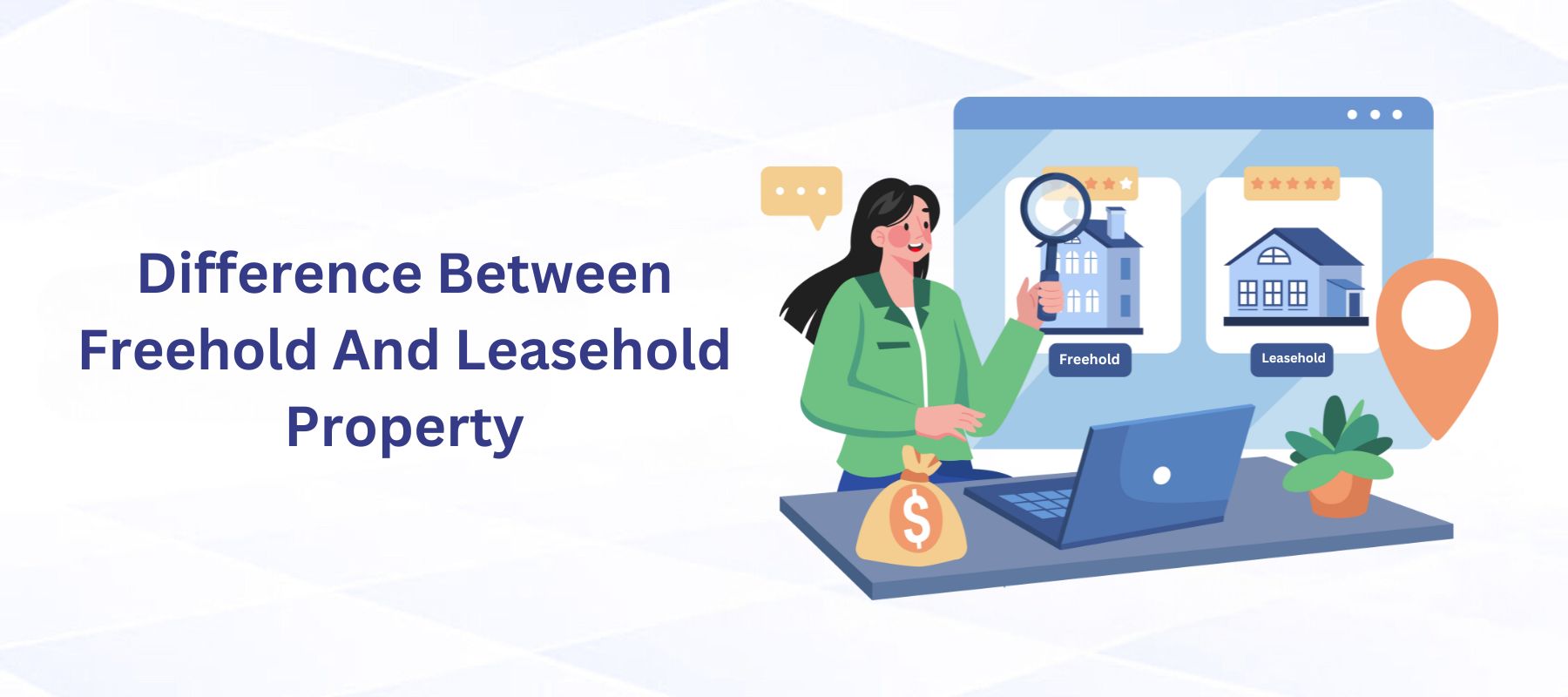Special Offers




Special Offers




30-Sep-2024 | Home Loan

In India, there are two types of property i.e. Freehold and Leasehold. In both properties; there are certain differences when it comes to their purchase, ownership, and sale. It is crucial to understand the difference between freehold and leasehold property as it plays a vital role in ownership. In this blog, we will come to know the key differences between freehold and leasehold properties, along with their benefits and buying processes. This will support you in making the right decision when it comes to buying a property.
A freehold property is one where the buyer has complete ownership of the property or land as it stands with no additional ground rent. If you purchase a freehold property, you gain full ownership rights and complete control. Complete ownership means that you can make changes to this property without any restriction. You can also sell or transfer the property as per your choice. The ownership remains the same until you don’t want to change it.
Freehold property does not involve any ground rent and thus you will only be responsible for any additional costs, expenses, or charges such as renovations costs, maintenance and repair costs, etc. Having complete ownership over the property allows you to make alterations and improvements without any permission or documentation formalities. As the name suggests, a freehold property is a property that is free from all holdings. That’s why you have absolute ownership of property without any restrictions.
Freehold property holds significant benefits such as:
Right of Ownership: The ownership of a freehold property is fixed and perpetual, thus, it cannot be transferred to someone else till the owner of the property himself transfers it. In freehold property, there are no lease-related or rent-related concerns.
Property Control: Sole ownership of property gives you complete control over the property. You can make changes or improvements as per your requirements.
No Costs Involved: There are no lease-related costs involved in freehold property. Expenses like ground rent and other charges are not included in it, which makes it more cost-effective.
Long-term Investment: The value of this type of property generally increases with time. Investing in these types of property can make a solid asset for the future.
A leasehold property specifies that you own a specific building for a fixed period. The land on which that property stands belongs to the freeholder (landlord). An agreement known as a lease agreement describes the duration of ownership, which can be hundreds of years. Once the lease period expires, ownership of the property reverts to the landlord, and you no longer have any rights to the property. However, you can discuss extending the lease period with the freeholder (landlord) if desired.
This is a type of ownership on property in which you have the right to use this property for a fixed period according to lease agreement. This agreement guides you about your rights and responsibilities, including how to handle the property. You have to pay regular ground rent to the landlord and there may be extra charges for maintenance as per agreement terms and conditions. When buying a leasehold property, certain documents are essential to ensure a smooth and legal transfer of ownership.
Leasehold properties are often termed as less expensive as compared to freehold properties. This makes it affordable and budget-friendly to purchase a leasehold property.
These properties are located in highly desirable areas with access to key urban services that can be out of reach of freehold properties.
These types of properties remain in high demand areas and can offer a great return on investment. When the lease period is long and the property is maintained well, it can give a solid ROI.
Leasehold property can be more flexible in terms of ownership if you don’t intend to own a property for a long period.
|
Element |
Freehold Property |
Leasehold Property |
|
Possession
|
Full possession of the property or land on which it stands. |
Fixed possession of the property for a specific period with limited rights. The lessee cannot claim possession of the land on which the property stands.
|
|
Duration of Ownership |
Ownership is perpetual, there is no time limit. |
The duration of ownership depends upon the lease agreement. |
|
Control/Restriction |
There is complete control over the property with no restrictions. |
There are restrictions according to the lease agreement. |
|
Maintenance Cost |
The owner is responsible for all maintenance costs and extra charges. |
There is less initial cost, but have a high maintenance cost. |
|
Documentation |
Need a title deed, sale deed, and other payment receipts. |
Need a lease agreement, sale deed, and service payment receipts. |